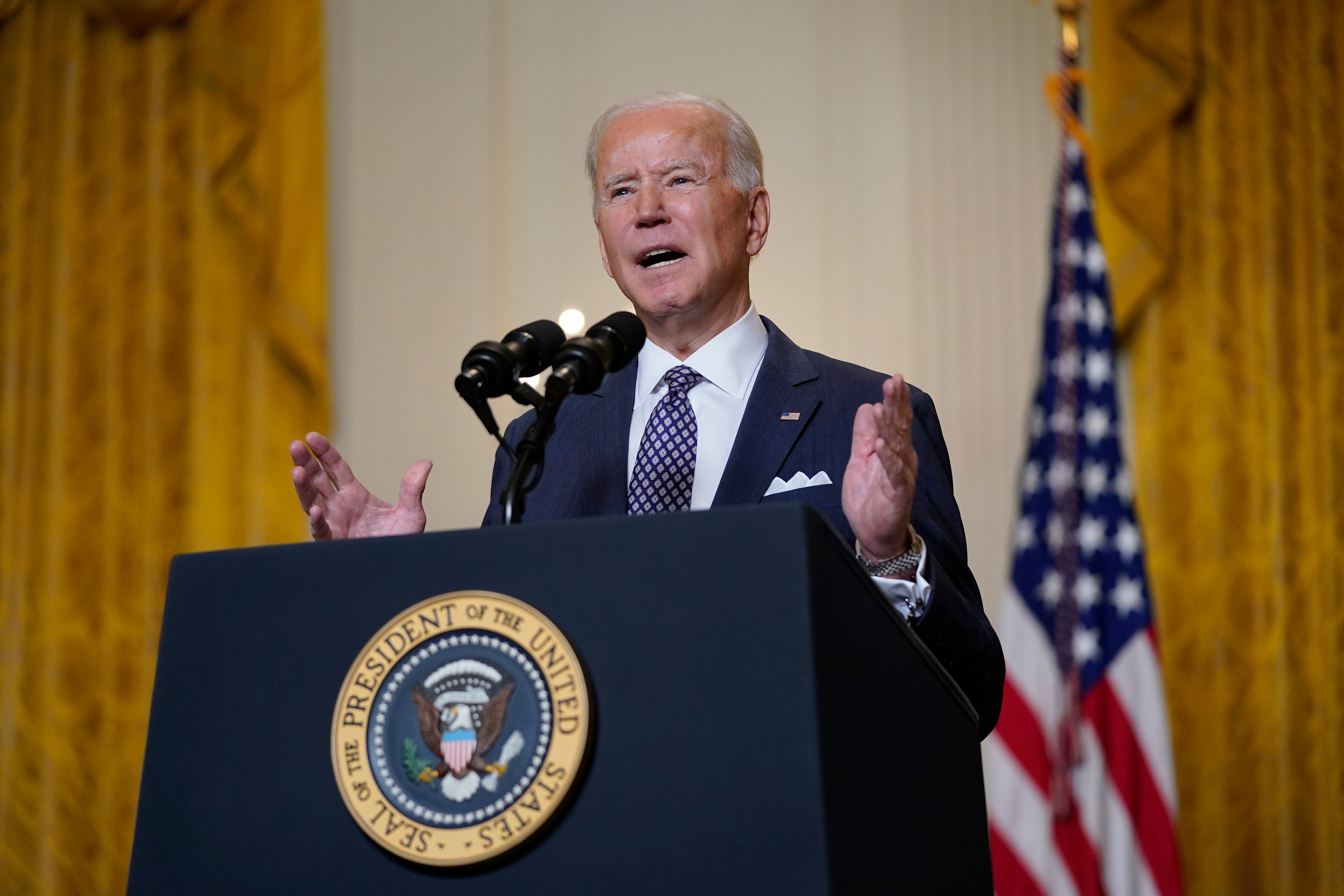Europe applauds Biden's approach, stresses cooperation
U.S. President Joe Biden’s first major foreign policy address since taking office has brought relief to many European capitals

Collective sighs of relief could be heard from many European capitals Saturday after U.S. President Joe Biden made clear in his first major foreign policy address since taking office that he rejected the “America First” and transactional approach of his predecessor and urged cooperation among Western allies.
At the same time, politicians and observers cautioned that some of the sources of tension from Donald Trump's presidency remained and that the allies have serious work ahead of them, once Biden's honeymoon is over.
“Biden gave exactly the speech that many Europeans wanted to hear - an America that pats you on the shoulders, that doesn't criticize or demand," wrote Germany's influential Der Spiegel magazine after Biden on Friday became the first American president to appear at the Munich Security Conference, albeit in virtual form.
“Will it stay that way? For the moment, it was certainly the right message: It was primarily intended to patch up the injuries of the Trump years,” the magazine said in an analysis.
The annual Munich Security Conference has long been heralded as a gathering where world leaders are able to share and debate ideas in an informal setting.
Biden's speech highlighted the condensed agenda for this year's conference, which was held online due to the coronavirus pandemic.
In his keynote address, Biden assured other participants, including French President Emmanuel Macron German Chancellor Angela Merkel and British Prime Minister Boris Johnson, that the United States was “determined to reengage with Europe, to consult with you, to earn back our position of trusted leadership.”
Over the last four years, the NATO alliance was shaken by Trump's questioning of its relevance and his suggestion that the United States might not come to the aid of members who failed to meet pledges to commit 2% of gross domestic product to defense spending.
But Biden made no mention of Washington's opposition to the Germany-Russia joint Nord Stream 2 pipeline project and steered away from criticizing Germany and others for failing to meet NATO defense spending goals. Instead, he emphasized Washington's commitment to Article 5 of the NATO founding treaty, which states that an attack on one alliance member is considered an attack on all.
It is now important for Germany and the rest of Europe to seize upon the renewed U.S. willingness to engage in dialogue and work hard toward resolving areas of disagreement, said Juergen Hardt, the foreign policy spokesman for Merkel's parliamentary group.
“With his speech, Joe Biden reached out to Europe,” Hardt said. “
The coming months must be used intensively to resolve numerous open issues, such as punitive tariffs, extra-territorial sanctions on Nord Stream 2, or digital tax,” he said.
Merkel told reporters Friday after Biden's speech that it is up to Europe to take an example from his first days in office, and follow words with actions.
She cited the United States’ return to the Paris climate agreement, its decision to stay in the World Health Organization and to engage with the U.N. Human Rights Council, to extend the New START treaty and to try to revive the Iran nuclear agreement as “important steps toward more multilateral cooperation.”
“I can only support (the idea) that it is up to democratic countries not just to talk about freedom and values, but to produce results,” Merkel said.
In a nod toward Biden's call for cooperation in addressing economic and national security challenges posed both by Russia and China, several leaders suggested more could be done.
The leader of the European Union's executive branch, European Commission President Ursula von der Leyen, noted at the conference that “a more and more assertive China” showed robust economic growth in 2020 despite the pandemic and “a more and more defiant Russia continues to breach international rules at home and abroad.”
“It is up to us, the United States and Europe, to strengthen our cooperation again as proven and trusted partners, as indispensable allies, shoulder to shoulder," von der Leyen said. "Because if we lead the way, this is not only about joining forces, this is a signal to the world.”
European Council President Charles Michel underlined the need for a common approach to “defend the rules-based international order from the attacks of autocratic regimes, whether from Russia, China or Iran," saying “a strong partnership needs strong partners.”
“That’s why we, in Europe, are growing stronger, to increase our strategic ability to act,” Michel said.
France's Macron, who has pushed since his own presidency began in 2017 for Europe to do more for its own defense, suggested that by doing so, it would be strengthening the U.S. ability to focus more on the Pacific region.
“I think it is time for us to take much more of the burden of our own protection,” he said.
Merkel, meanwhile, stressed that “it is very important that we develop a common trans-Atlantic Russia agenda, which on the one hand makes cooperative offers, but on the other hand very clearly names the differences.”
“The second and perhaps more complicated thing is for us to develop a common agenda toward China,” she said, noting that the country is both a systemic competitor and needs to tackle issues such as climate change.
“There is a great deal to do,” Merkel said. “Germany stands ready for a new chapter of the trans-Atlantic partnership.”
_____
Angela Charlton and Sylvie Corbet in Paris, and Geir Moulson in Berlin contributed to this story.
Bookmark popover
Removed from bookmarks